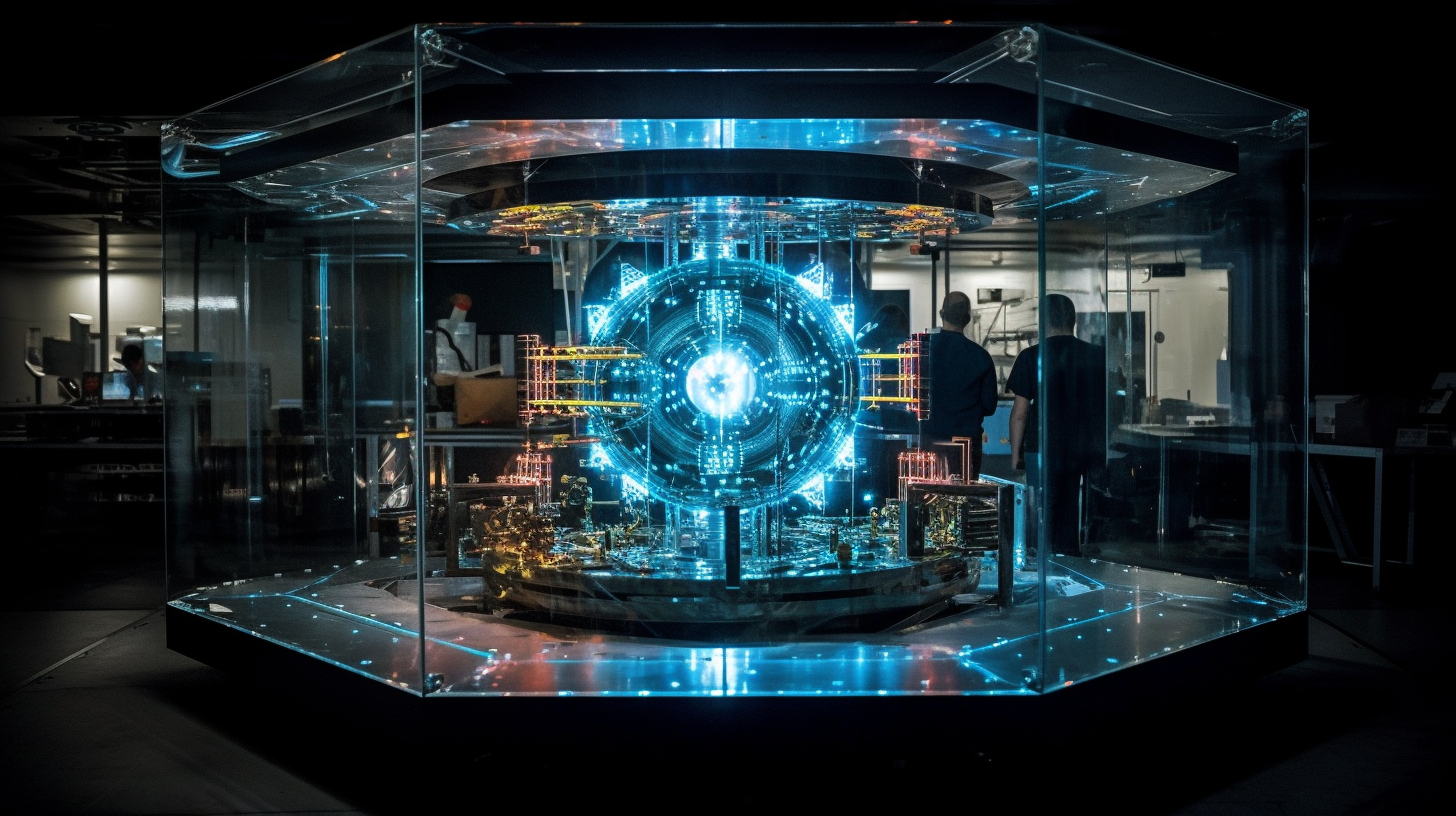The Future of Quantum Computing: What to Expect in the Next Decade
Quantum computing, once a concept confined to the realms of science fiction, is now on the brink of becoming a game-changer in the world of technology. As we stand at the precipice of a new era, it's essential to understand what the next decade holds for this revolutionary field.

Understanding Quantum Computing
To grasp the future, we must first understand the present. Quantum computing operates on the principles of quantum mechanics, a branch of physics that delves into the behavior of particles at the atomic and subatomic levels. Unlike classical computers that use bits (0s and 1s), quantum computers use quantum bits or qubits. These qubits can exist in multiple states simultaneously, allowing quantum computers to process vast amounts of information at once.
Why Quantum Computing Matters
The potential of quantum computing is mind-boggling. From revolutionizing drug discovery to optimizing supply chains and cracking complex cryptographic codes, the applications are endless. Its ability to solve problems deemed unsolvable by classical computers sets it apart, making it a beacon of hope for various industries.
Current State of Quantum Computing
While still in its infancy, significant strides have been made in the field. Companies like IBM, Google, and Microsoft are pouring resources into research and development, aiming to make quantum computing accessible to the masses.
Challenges Ahead
Every silver lining has a cloud, and quantum computing is no exception. Issues like error correction, qubit stability, and the need for extremely low temperatures pose challenges. However, with every hurdle crossed, we inch closer to a quantum future.
Quantum Computing vs. Classical Computing
While quantum computers promise unparalleled processing power, they won't replace classical computers. Instead, they'll complement them, tackling problems beyond the reach of their classical counterparts.

Industries Set to Benefit
From healthcare to finance, various sectors are poised to reap the benefits of quantum computing. Its ability to analyze vast datasets in seconds can revolutionize industries, leading to breakthroughs we've only dreamed of.
The Quantum Internet
Imagine a world where information is transferred instantaneously and securely. The quantum internet, still a budding concept, promises just that. Leveraging the principles of quantum entanglement, it could redefine the way we communicate.
Ethical Considerations
With great power comes great responsibility. The advent of quantum computing brings forth ethical dilemmas, especially in areas like surveillance and data privacy. It's crucial to address these concerns to ensure a harmonious future.
The Road Ahead
The next decade is crucial for quantum computing. As research intensifies and technology advances, we're set to witness a paradigm shift in computing, one that could reshape our world.
The Global Race
Countries worldwide are vying for quantum supremacy, investing billions into research and development. This global race not only accelerates advancements but also highlights the universal recognition of quantum computing's potential.
Educating the Next Generation
For quantum computing to flourish, we need a workforce skilled in quantum mechanics and related fields. Initiatives to educate and train the next generation are paramount to harnessing the full potential of this technology.
The Investment Landscape
The buzz around quantum computing has piqued the interest of investors. As startups emerge and established players delve deeper, the investment landscape is set to flourish, driving further innovation.
The Future of Quantum Computing: What to Expect in the Next Decade
The next ten years are pivotal. We can expect breakthroughs in quantum algorithms, more stable qubits, and perhaps even the first commercially viable quantum computer. The journey is riddled with challenges, but the rewards, monumental.

FAQs
What is a qubit?
A qubit, or quantum bit, is the fundamental unit of quantum information. Unlike classical bits that can be either 0 or 1, qubits can exist in a superposition of both states simultaneously.
How does quantum computing differ from classical computing?
While classical computers use bits, quantum computers use qubits. This allows them to process vast amounts of information simultaneously, making them exponentially more powerful for specific tasks.
Why is there so much excitement around quantum computing?
Quantum computing promises to solve problems deemed unsolvable by classical computers. From revolutionizing industries to potentially cracking cryptographic codes, its potential applications are vast.
Are quantum computers commercially available?
While quantum computers aren't commercially available for general use, companies like IBM offer cloud-based quantum computing services for research purposes.
What challenges does quantum computing face?
Quantum computing faces challenges like qubit stability, error correction, and the need for extremely low temperatures for operation.
Will quantum computers replace classical computers?
No, quantum computers won't replace classical computers. They'll complement them, handling tasks beyond the reach of classical computing.
The future of quantum computing is bright, filled with promise and potential. As we embark on this quantum journey, the next decade is set to be transformative, heralding a new era in technology. With challenges to overcome and mysteries to unravel, one thing is certain: the quantum revolution is just beginning.